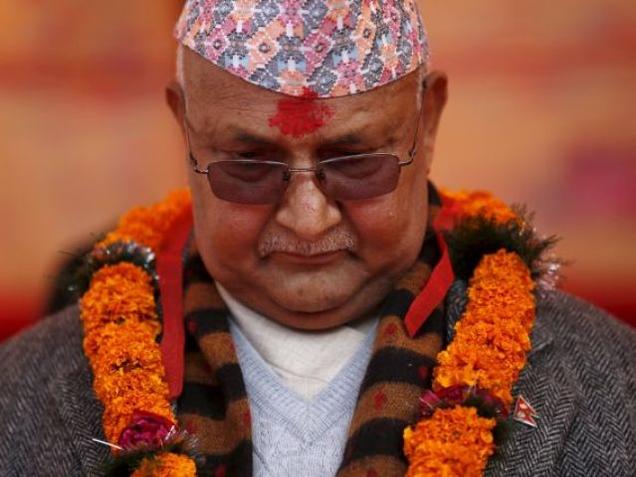-
Tips for becoming a good boxer - November 6, 2020
-
7 expert tips for making your hens night a memorable one - November 6, 2020
-
5 reasons to host your Christmas party on a cruise boat - November 6, 2020
-
What to do when you’re charged with a crime - November 6, 2020
-
Should you get one or multiple dogs? Here’s all you need to know - November 3, 2020
-
A Guide: How to Build Your Very Own Magic Mirror - February 14, 2019
-
Our Top Inspirational Baseball Stars - November 24, 2018
-
Five Tech Tools That Will Help You Turn Your Blog into a Business - November 24, 2018
-
How to Indulge on Vacation without Expanding Your Waist - November 9, 2018
-
5 Strategies for Businesses to Appeal to Today’s Increasingly Mobile-Crazed Customers - November 9, 2018
Nepal PM Set To Lose No-Confidence Vote As Allies Depart
The motion, moved by Oli’s former ally CPN Maoist Centre and the main opposition Nepali Congress, would be put to vote subsequently.
Advertisement
The meeting was held at the Nepali Congress party office situated at the historical Singhdurbar in Kathmandu.
Nepali Congress leader Bimalendra Nidhi confirmed that the three parties made a decision to first table the budget bill to vote, after which the House will take forward the no confidence motion Oli-led government.
CPN Maoist Centre leader Pushpa Kamal Dahal tabled the motion with the support of 201 members of 13 parties.
Oli, who became prime minister last October heading Nepal’s eighth government in the past 10 years, has been facing a no-trust motion after the Maoists withdrew support from the coalition government last week.
The impasse was reportedly reached after PM Oli backtracked on a verbal agreement he had reached with the Maoist chief in May to hand over leadership of the government to the latter after the Parliament’s endorsing of the new budget. His proposal has been backed by the Nepali Congress, the largest party in Parliament.
Advertisement
Nepali Congress and Maoist had made a decision to table the bills before tabling the no-trust motion as per the request of the ruling parties, but they voted against it.





























